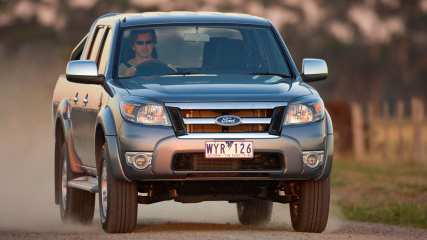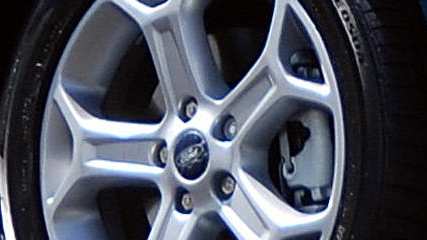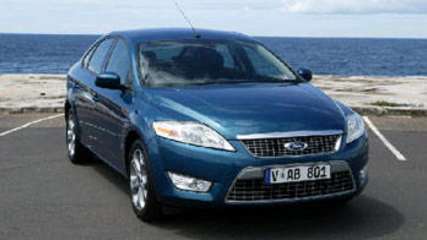Bagging a bargain
By Ashlee Pleffer · 10 Mar 2007
Used car expert, Chris D'Sousa, says if you equip yourself with the right knowledge and the right frame of mind, you can find a good deal. And for cars up to $5000, you're best off looking for cars circa 1991 to 1995.
D'Sousa, the operations manager for automotive information service Glass's Guide, says the car will generally have done about 180,000km to 240,000km but you can get ones with less kilometres if you look around and don't rush into a sale. In terms of models, he says the Japanese cars are best for reliability.
"You could look at a Suzuki Swift or a Daihatsu Charade," he says. "Small cars would be the best way for younger people to go with a bigger range on offer. Nissan Pulsar, Toyota Corolla, Mitsubishi Lancer, Mazda 323, Honda Civic, Ford Laser, Daihatsu Applause, they're all reasonably reliable, providing they're in good condition."
For those after a slightly bigger car, the Toyota Camry, Mazda 626, Ford Telstar and Holden Apollo are worth consideration.
Even larger still, D'Sousa says there are many Falcons and Commodores available in this price range. But people should be aware these cars can be expensive to run and if you're working on a budget, smaller, four-cylinder engines are a better option.
And when you've made that decision to buy a used car, D'Sousa says you should follow some important steps.
"First they should identify the car they're looking for in terms of brand," he says.
"If, for example, they like Corolla or Pulsar, they should understand prices and what your money can buy."
For this, he recommends some research on websites, newspapers and magazines.
Then you can begin the "window shopping" process. "Find a car closest to where you're living and have a look. Don't buy the first car you see, have a look at six or seven, it will give you an idea of what's good for your money."
D'Sousa says buyers should be on the lookout for rust spots and should avoid buying cars from beachside areas if possible, as these are inclined to have some rust. Buyers should also be aware of poor repairs.
"Drive the car, get a feel for it, does it handle well, check the oil is clean. If it's an auto, check it's changing gears properly, if it's manual, make sure the clutch isn't slipping."
And if you don't know much about cars, be sure to get it checked by an expert.
"Once vehicles get to these ages, they tend to suffer major mechanical faults if not serviced well," he says.
When it comes to choosing a car, it can be a very emotional decision and D'Sousa warns that your feelings can get in the way.
"Take someone with experience, such as a parent or friend, for a second opinion and to provide you with that balance," he says. "Some people buy with their heart rather than their head. With a car that age, it's very important you have a lot more than your heart."
Airbags and ABS were just beginning to be introduced around 1994 and 1995 and D'Sousa says you may be able to find cars in this price range that have these features, mainly the larger ones. But he says these shouldn't be a priority and you should make sure the car is in good condition first.
Newer cars could slip into this price range, with these features, and might seem like a bargain. But he warns the vehicle may be in poor condition.
D'Sousa says another important step is to check the title to ensure the history of the vehicle. You can do this through the Register of Encumbered Vehicles (REVS).
Some luxury European cars might also fit into this price range, but these often require expensive parts and are hard to service, so it may not be such a wise investment. D'Sousa advises people to stick to the more common cars and avoid vehicles with modifications.
NRMA Insurance head of research Robert McDonald says when buying an older model make sure you do your homework and check for things such as collision repairs.
McDonald also warns that modified vehicles are expensive to insure.
"Modifications that can impact on insurance include increased engine size, expensive stereos, some alloy wheels, suspension lowering or raising, and expensive or elaborate paintwork. Check with your insurer first before buying or modifying a vehicle," he says.






